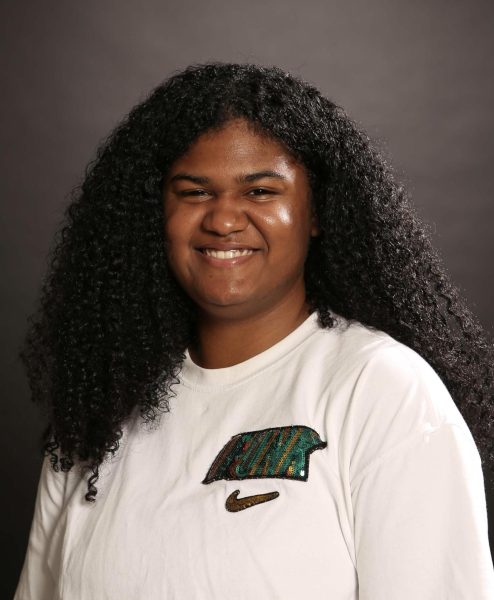
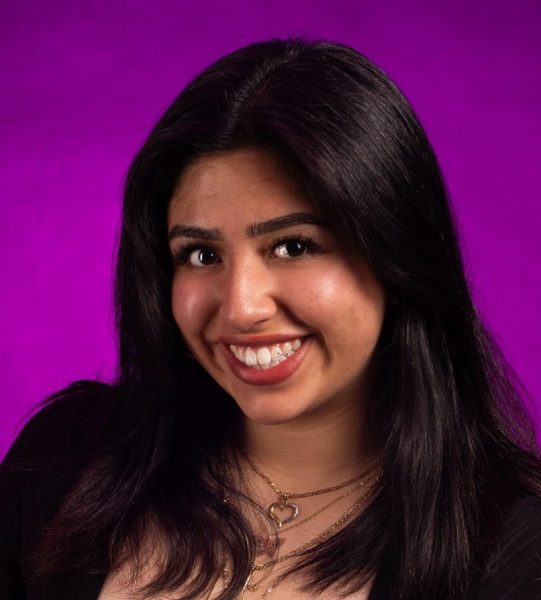
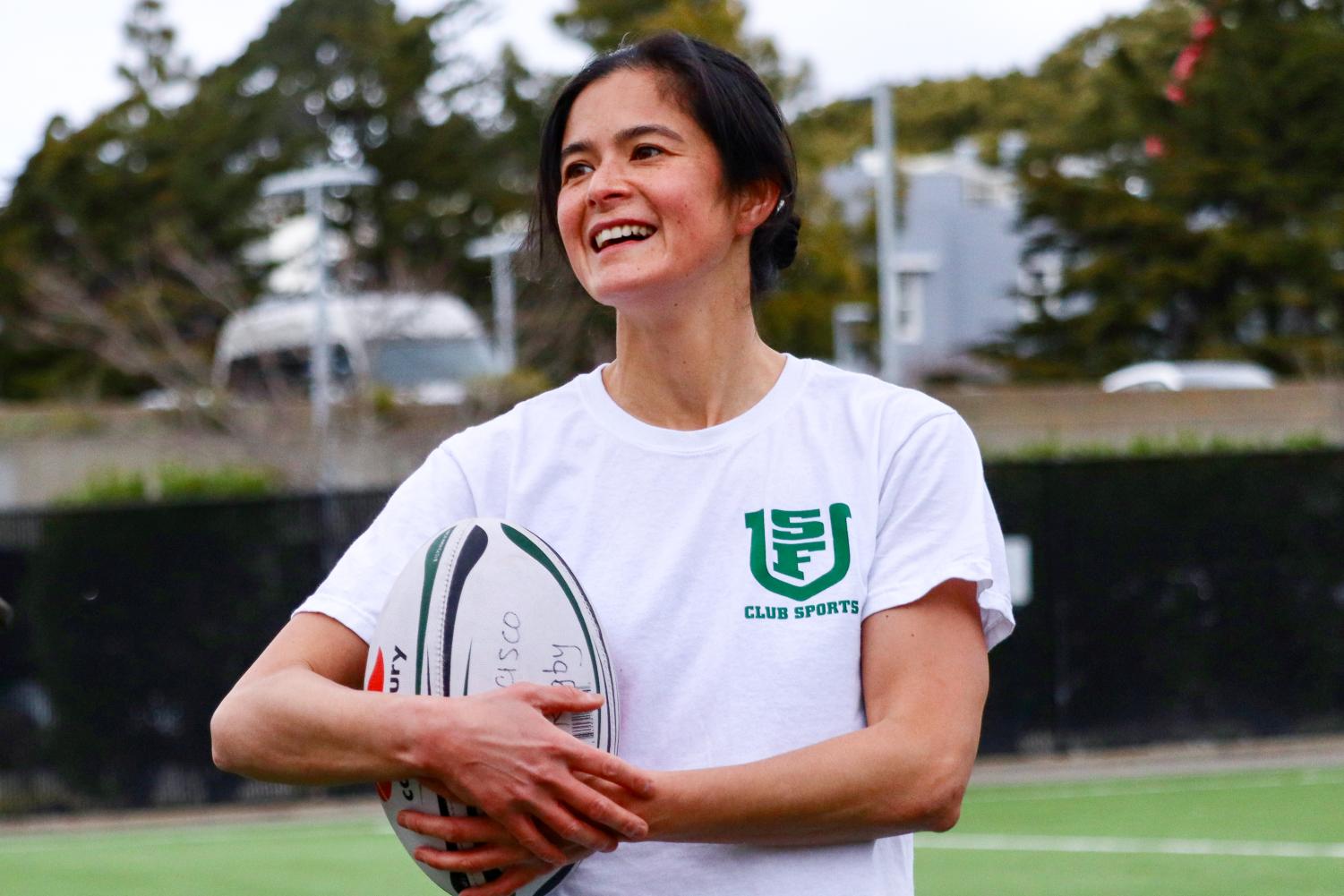

For Irene Gardner, rugby is about connecting with and supporting her players off the field and bringing exposure to the sport
Mar 31, 2023
Last school year, Trinity Acfalle, the president and founder of the women’s rugby team at SF State, wanted to create a single team with the University of San Francisco women’s rugby team. After a few years of Acfalle building a team and establishing its presence, the team was finally ready to compete.
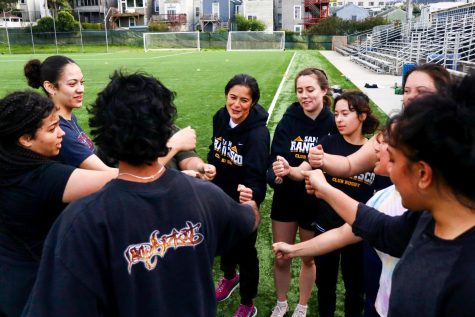
But they needed a coach.
This past August, SF State and USF became one team –– two organizations. The new head coach, Irene Gardner, arrived at a joint practice with the men and women’s rugby teams at SF State.
“I was a little late to that practice, we were running the practice with the men’s team and I walked out there and I was trying to look for her and I saw her, and she’s running laps with the team. She wasn’t just watching, she was out there doing the drills,” said Acfalle.
Gardner’s introduction to rugby came from her sister, but growing up, neither of them played rugby, let alone even know what the sport was.
“When I was at Cal in my first year, [I] didn’t do anything but I really missed the team aspect of sports,” Gardner said. “I saw an ad in the Daily Cal, the school’s newspaper with a blurb on women’s rugby, like an info meeting. So, I grabbed my roommate and we went and I’ve played ever since then.”
Gardner said that if it weren’t for her sister Elaine, she never would have gotten involved with rugby.
“I’ve done some cool things, but one of the highlights is being able to play with your family, so being able to play with my sister, those years were really, really special,” Gardner said.
When one travels from their hometown to attend college, the adjustment can be hard –– it’s a new environment with new experiences.
“In college, it empowered me and not in the sense of individual empowerment, but in that sense of community. Going into a big school, like Cal [Berkeley], I had friends, but I didn’t necessarily have a community,” Gardner said. “Rugby created that community for me, which I think allowed me to grow personally, in my academics, and really discover what I wanted to do or what I wanted to pursue.”
She continued to pursue rugby in Atlanta, Georgia, where she simultaneously did an internship while obtaining her master’s.
After she moved back to the Bay Area, she started playing for the Berkeley All Blues, one of the highest competing sevens, and won two national championships in 2011 and 2013.
The same year she started playing for the All Blues, there was an open tryout for the United States National team. This is where the role of rugby in her life shifted from finding a community to finding self-empowerment.
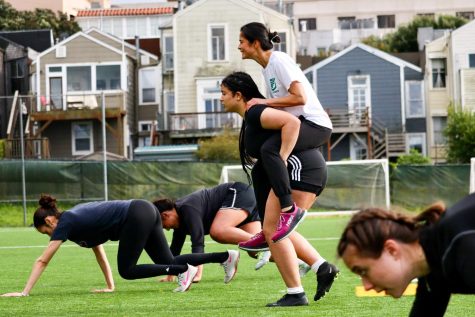
Playing for the U.S. National team, the highest level in rugby, required her to tap into another level physically and mentally. Having a community such as her sister and the friends she’s made from the sport has helped her reach new levels.
She said it’s been building blocks on what rugby has given her self-identity, physical strength, mental strength and exploring the world. Exploring the world was something she never expected rugby would bring her as a player or as a coach.
Garnder said that coaching came as a natural progression to her especially, in the latter part of her playing career.
“I really started to understand the nuances of the game and became really interested in the strategy and how quickly the sport was changing,” Gardner said. “I think that that’s really intriguing to me. Coaching is about connecting with people, that comes back to the reason I started playing was that fundamental community base, impacting and creating that space.”
She said it’s for young athletes to develop community, to develop identity, and to do it in an environment where they are safe and supported to do so.
Acfalle said being the president of the SF State team has not only taught her skills on the field, but also her managerial skills, especially because she only played for one season.
“There was only so much I knew and so many resources I was aware of, and when we started working together she showed me things and introduced me to things that would help SF State compete independently and in terms of moving forward in my athletic career,” Acfalle said. “In terms of networking, she’s there for her girls.”
Gardner’s desire to take rugby as far as she can in terms of her career makes Acfalle want to push herself.
“To see people who have already done it and figured out the process, you’re going to listen to somebody who’s already succeeded, she accomplished an amazing athletic career and that motivates you to do it too,” Acfalle said.
Acfalle said she probably wouldn’t have understood the extent of her abilities on and off the field if it wasn’t for Gardner.
“That’s the way I try to coach. I don’t want players to be afraid to make mistakes because they never really discover what they can do, I love when my players take chances – whether it’s in rugby or elsewhere, to really try to expand their individual growth,” said Gardner.
Gardner said she finds herself coaching individuals more rather than the game.
“The amount of coaching people versus the amount of rugby has shifted more at this level because their previous exposure to rugby is so little, they’re all so new to the sport that my main job is to connect with them individually and then get them to connect with each other,” said Gardner.
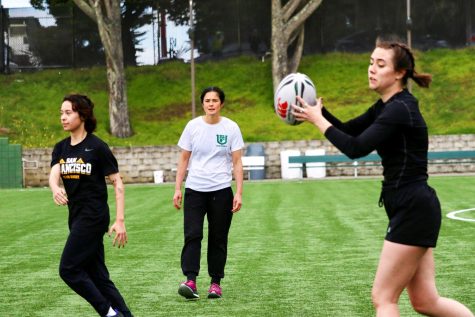
Gardner teaches them skills necessary for the game, but connecting the teammates is a fundamental piece of any team sport.
Rugby player Trinity Garrido said it’s something new she hasn’t experienced with coaches after being a part of various sports teams.
“From what I can tell, there’s just not a bad bone in her body. Yeah, she’s great at rugby, she plays rugby, she knows a lot about rugby, but she is just such a kind soul and so damn supportive and so much has happened in my life this season,” said Garrido.
Garrido recalls a practice when she broke down crying and Gardner pulled her aside and connected with her on a personal level. She hugged her and shared with her some advice for what she was going through at the time.
“It’s really nice to know that she’s just there for us, not just as players, but as people,” Garrido said. “She’s so damn compassionate. I’m not used to that.”
As a San Francisco native, Gardner doesn’t see rugby greatly represented by her community and she wants to change that. Its establishment is in the works, but Legends Rugby Academy will not increase the number of women who are exposed to rugby.
“There’s a big drop off in girls’ rugby and access is not available and there’s so much opportunity here,” Gardner said.
There are not many opportunities for girls or women to play rugby in the city. Gardner coaches the only women’s rugby team in San Francisco and a rugby club named San Francisco Golden Gate, which offers a team for girls ages 12 and under.
“It gives opportunities for all these amazing young people we have in this city from all backgrounds. It creates a level playing field for them to have a college opportunity,” said Gardner. “Creating college opportunities for families where no one has ever gone to college if you can do that through a sport, that’s incredible.”

